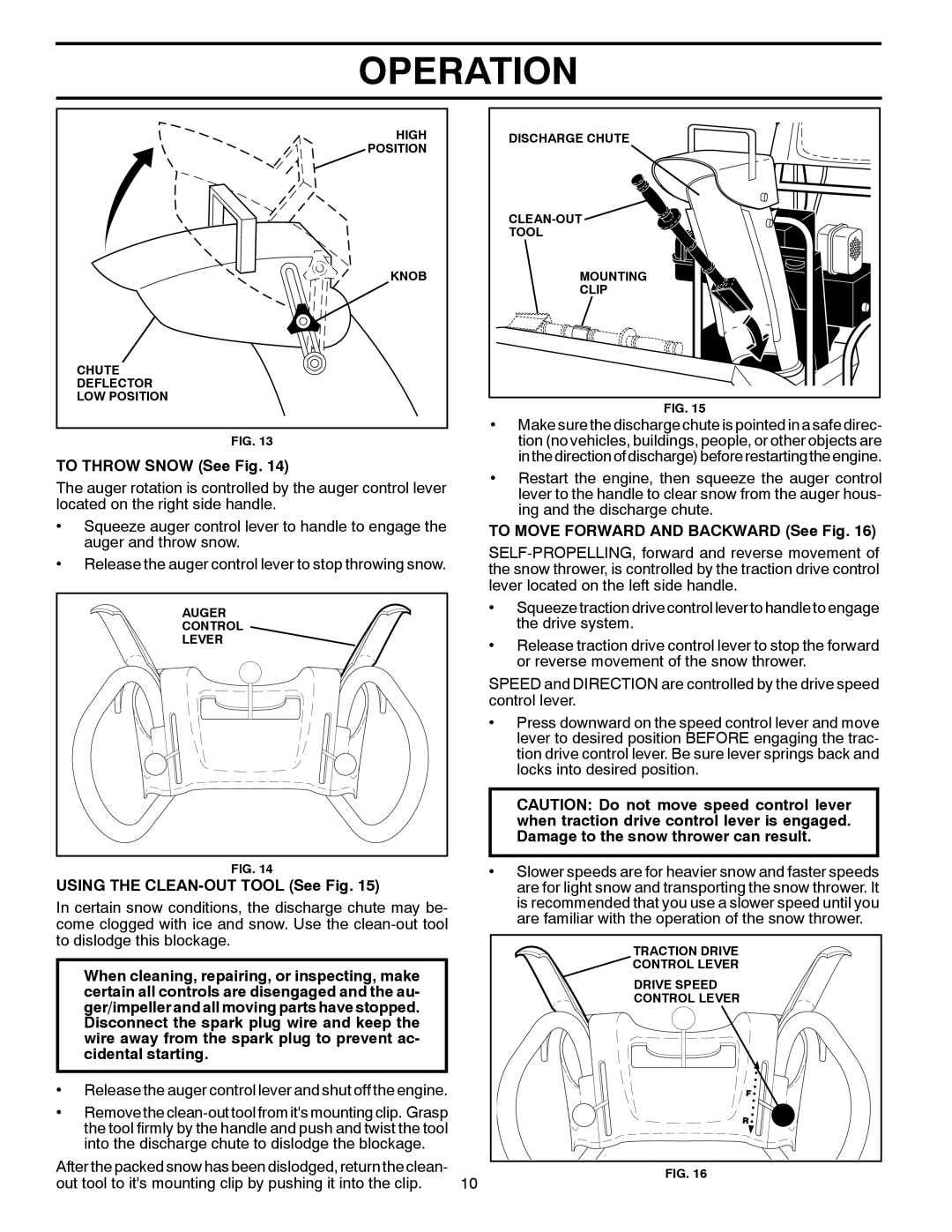
OPERATION | |
HIGH | DISCHARGE CHUTE |
POSITION |
|
| |
| TOOL |
KNOB | MOUNTING |
| CLIP |
CHUTE |
|
DEFLECTOR |
|
LOW POSITION | FIG. 15 |
| |
| • Make sure the discharge chute is pointed in a safe direc- | |
FIG. 13 | tion (no vehicles, buildings, people, or other objects are | |
TO THROW SNOW (See Fig. 14) | in the direction of discharge) before restarting the engine. | |
• Restart the engine, then squeeze the auger control | ||
The auger rotation is controlled by the auger control lever | ||
lever to the handle to clear snow from the auger hous- | ||
located on the right side handle. | ||
ing and the discharge chute. | ||
• Squeeze auger control lever to handle to engage the | ||
TO MOVE FORWARD AND BACKWARD (See Fig. 16) | ||
auger and throw snow. | ||
• Release the auger control lever to stop throwing snow. | ||
the snow thrower, is controlled by the traction drive control | ||
| lever located on the left side handle. |
AUGER
CONTROL
LEVER
FIG. 14
USING THE CLEAN-OUT TOOL (See Fig. 15)
In certain snow conditions, the discharge chute may be- come clogged with ice and snow. Use the
When cleaning, repairing, or inspecting, make certain all controls are disengaged and the au- ger/impeller and all moving parts have stopped. Disconnect the spark plug wire and keep the wire away from the spark plug to prevent ac- cidental starting.
•Release the auger control lever and shut off the engine.
•Remove the
After the packed snow has been dislodged, return the clean- out tool to it's mounting clip by pushing it into the clip.
•Squeeze traction drive control lever to handle to engage the drive system.
•Release traction drive control lever to stop the forward or reverse movement of the snow thrower.
SPEED and DIRECTION are controlled by the drive speed control lever.
•Press downward on the speed control lever and move lever to desired position BEFORE engaging the trac- tion drive control lever. Be sure lever springs back and locks into desired position.
CAUTION: Do not move speed control lever when traction drive control lever is engaged. Damage to the snow thrower can result.
•Slower speeds are for heavier snow and faster speeds are for light snow and transporting the snow thrower. It is recommended that you use a slower speed until you are familiar with the operation of the snow thrower.
TRACTION DRIVE |
CONTROL LEVER |
DRIVE SPEED |
CONTROL LEVER |
10 | FIG. 16 |
|
